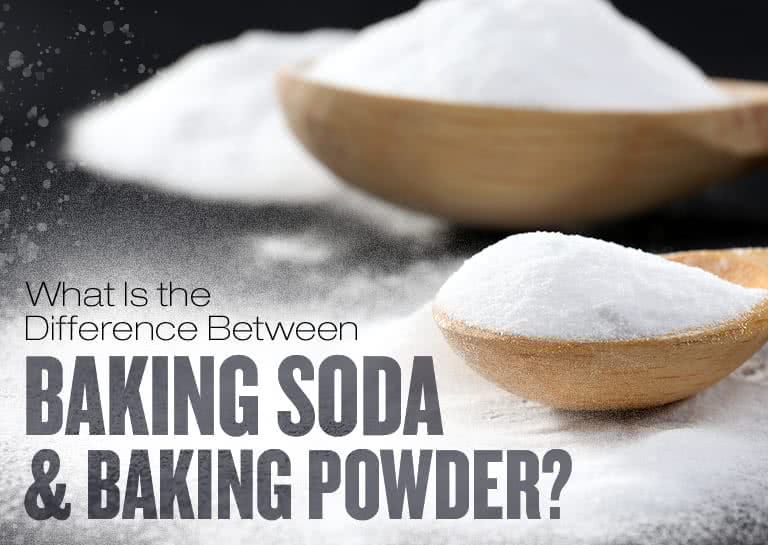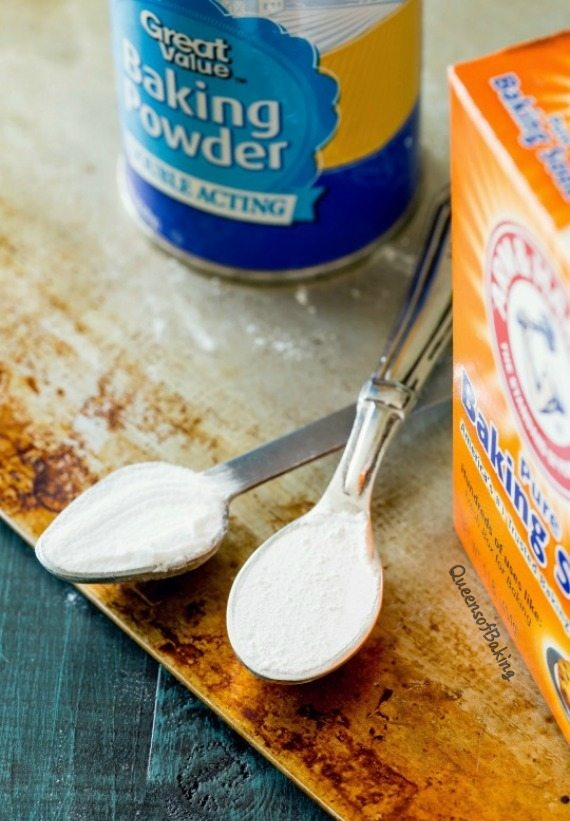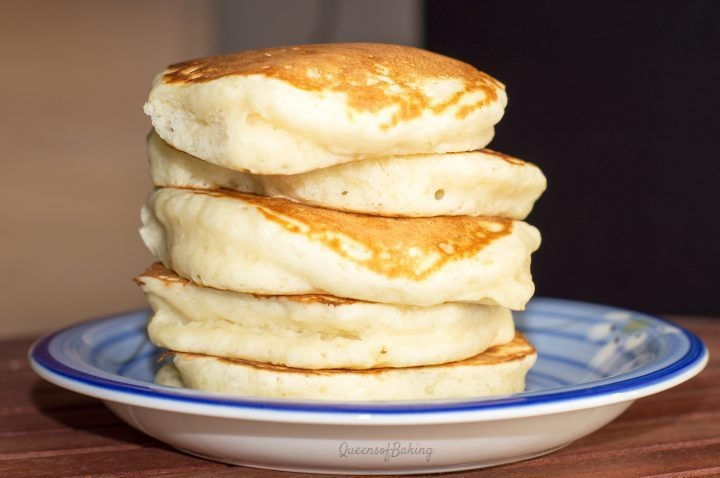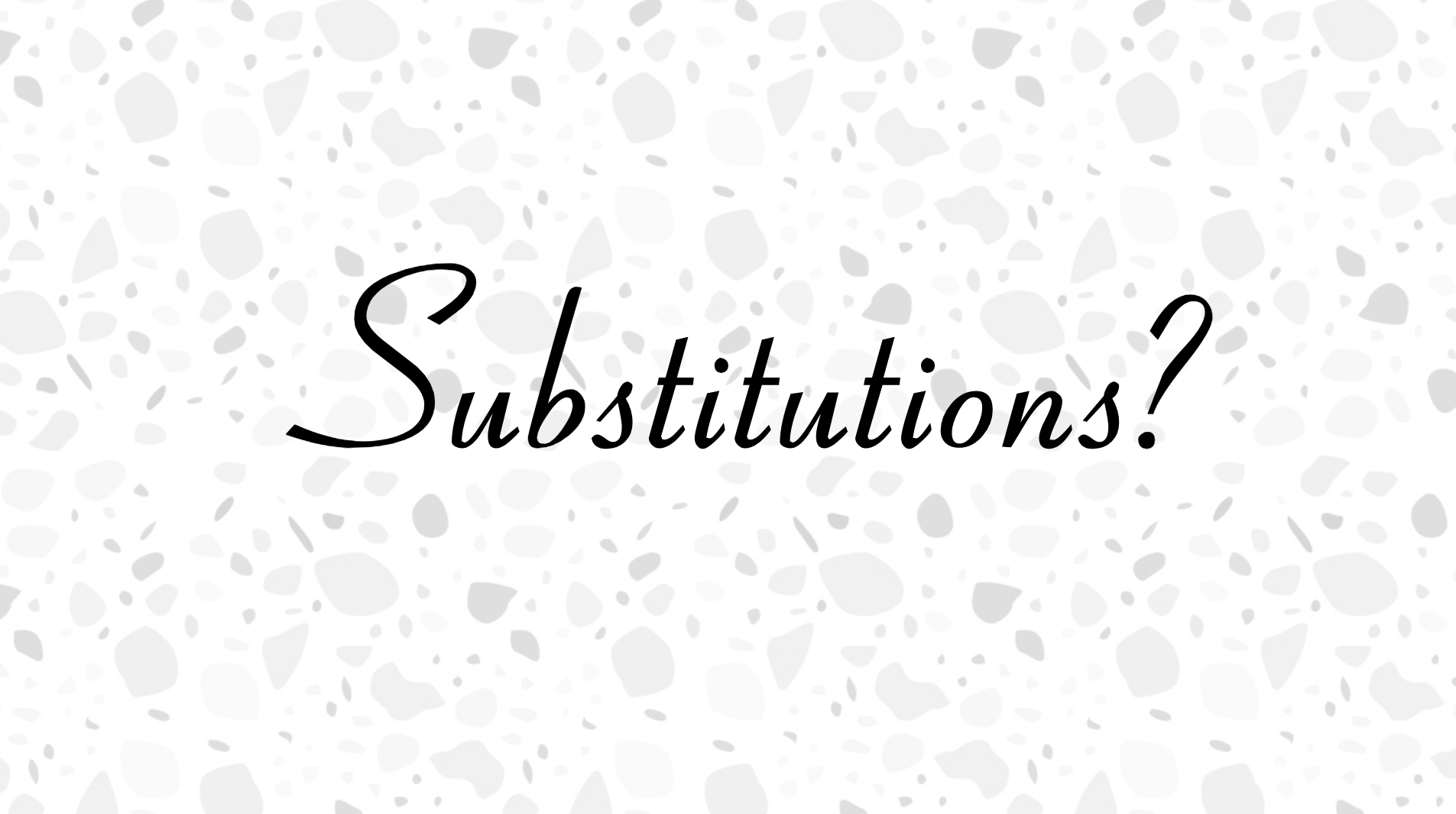Baking Soda vs. Baking Powder

What is the difference between baking powder and baking soda? Are they the same? Can we sub one for the other without changing anything else in the recipe? These are the most frequently asked questions that we get.
The one thing that you should take away from this chapter: baking powder and baking soda are absolutely not the same. You can not substitute one for the other.
~What is Baking Soda?
Aka bicarbonate of soda or sodium bicarbonate.
-Let's start with a science lesson:
Do you remember the science experiment that was done in school? Mixing baking soda with vinegar and watching an eruption of bubbles? Usually this was done in some sort of model volcano contraption. When you mix baking soda (base) with vinegar (acid) you get a chemical reaction (an eruption of bubbles). A product of this reaction is carbon dioxide.
The same exact reaction happens in our baked goods (cakes, cookies, cupcakes etc...) When a recipe calls for baking soda (base), it usually calls for some type of acid as well (buttermilk, brown sugar, yogurt, lemon juice, vinegar, cream of tartar, honey, molasses, applesauce or natural cocoa powder {not dutch process}. You need this acid in the recipes to react with the baking soda, which in turn creates carbon dioxide and allows your baked goods to rise.
Baking soda is strong. In fact, it is about 3 - 4 times stronger than baking powder. More baking soda in a recipe doesn't necessarily mean it will rise more. You want to use just enough baking soda to react with the amount of acid in the recipe. Too much baking soda and not enough acid means there will be leftover baking soda in the baked goods. You do not want that; it creates a metallic, soapy taste in your baked goods.
Good rule of thumb:
We usually use around 1/4 teaspoon of baking soda per 1 cup of flour in a recipe.
Baking soda can leaven a baked good when exposed to heat. However, unless it is neutralized with an acid, your finished baked good will likely have a metallic aftertaste; like we mentioned above.

~What is Baking Powder?
It is a mixture of baking soda, cream of tartar (a dry acid), and sometimes cornstarch.
Baking powder contains baking soda. These days, most baking powders sold are double acting. This means that the first leavening occurs when baking powder gets wet – like when you combine the dry and wet ingredients in the recipe. (This is why you cannot prepare some batters ahead of time to bake later– because the baking powder has already been activated). The second leavening occurs when the baking powder is heated (when you are baking).
Since baking powder already contains an acid to neutralize its baking soda, it is most often used when a recipe does not call for an additional acidic ingredient. Like sugar cookies. However, this isn't always the case. You can still use baking powder as the leavening agent in recipes calling for an acidic ingredient.
We know It is really confusing.
Good rule of thumb:
We usually use around 1 teaspoon of baking powder per 1 cup of flour in a recipe.

~Why do some recipes call for both?
Some recipes call for both baking powder and baking soda. These recipes contain some sort of acid (yogurt, brown sugar, etc), however the carbon dioxide created from the acid and baking soda is not enough to leaven the volume of batter in the recipe. That's why baking powder is used as well– to add the necessary lift.
Basically, the reason for both is because sometimes you need more leavening than you have acid available in the recipe. It's all about balance.
Another reason to use both baking powder and baking soda is because they affect both the browning and the flavor.
Let's break it down: In the pancake recipes, buttermilk is used partly for its tangy flavor. If we used only baking soda, it could neutralize all of the buttermilk's acid. And we'd lose that tanginess! However, by including baking powder as well (which has its own acid), some of the buttermilk's flavor is left behind, and there is still enough leavening for fluffy pancakes.
Take a bite out of this:


~How to Substitute?
It is very tricky to substitute to baking sodas and baking powders. Which is why we would NEVER recommend it without background knowledge (and the expectancy that your baked goods will not taste as intended).
If you have a recipe that calls for baking soda, you might be able to substitute baking powder. However, you will need up to 4 times as much baking powder to get the same amount of leavening. And, depending on the recipe, you might end up with a baked good that's a little bitter with that much baking powder.
You can sub baking soda for baking powder only if you increase the amount of acid in the recipe; which likely changes the taste and texture of your baked good. You'd also need less baking soda since it is about 3 - 4 times stronger.
So please, just stick to the recipe!

-Don't Forget - They do Expire!
You should replace your baking powder and soda every 3 months, just to be sure they are always fresh whenever you want to try out a recipe. We always put a date of purchase on the bottom of the container. If you don't know if they are expired or not you can test them for effectiveness before using.
-Testing the Baking Powder:
Pour 3 Tablespoons of warm water into a small bowl. Add 1/2 teaspoon of baking powder. Lightly stir the mixture. The mixture should moderately fizz if the powder is fresh. If there is no reaction, toss the baking powder and buy a fresh package.
-Testing the Baking Soda:
Pour 3 Tablespoons of white distilled vinegar into a small bowl. Add 1/2 teaspoon of baking soda. Lightly stir the mixture.The mixture should rapidly bubble if the soda is fresh. If there is no reaction, toss the baking soda and buy a fresh package.

For anyone still here, don't forget that baking is chemistry and it takes practice, trial and error, and the willingness to learn in order to succeed. If you are bored or think this is too much than please just stick to using the recipes as they are written.

If you have a cut on your fingers or hands,
don't touch baking soda or baking powder with your bare hands.
It will hurt and burn really badly.
Thank You for coming to our ted talk :)
Hope all this helps! Let us know if you have any questions.
~Hailey and Hannah :)
Bạn đang đọc truyện trên: AzTruyen.Top